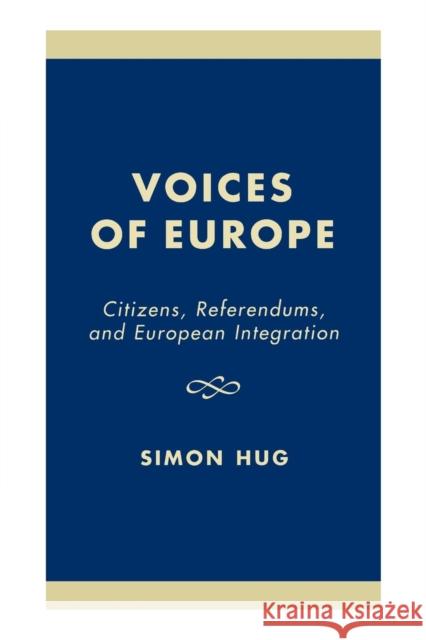Voices of Europe: Citizens, Referendums, and European Integration » książka
Voices of Europe: Citizens, Referendums, and European Integration
ISBN-13: 9780742516939 / Angielski / Miękka / 2003 / 192 str.
Referendums are playing an increasingly influential role in the process of European integration. Starting with the entry of a first wave of new European Community members in the 1970s, this instrument of popular decision making has grown ever more important. Later stages in the enlargement process of the European Union have led to even more referendums. Indeed, European integration was seriously jeopardized when Danish voters first rejected the Maastricht Treaty and France's citizens almost joined them. Yet we know very little about how referendums affect the integration process. This landmark study bridges this gap in two ways. First, it offers a thorough comparative analysis of referendums that have occurred so far in the process of European integration. Utilizing a detailed study of voting behavior by citizens in these referendum campaigns, Simon Hug argues that understanding this behavior is of crucial importance if we want to accurately assess the impact of referendums on European integration. The author then draws on his comparative data to analyze the likely consequences of referendums based on those that have taken place and proposals for new initiatives. With its detailed empirical analysis and theoretical foundation, this book makes an important contribution both to the study of referendums and to our understanding of institutional reform and integration within the EU.











